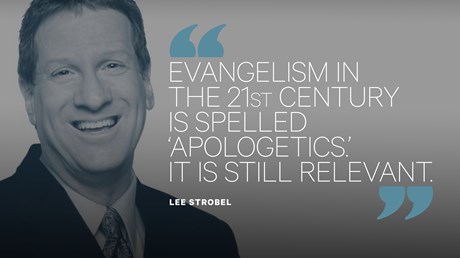As ‘The Case for Christ’ heads to the big screen, the journalist-turned-evangelist reflects on what’s changed—and what’s stayed the same—about defending the faith.

Nearly two decades have passed since Lee Strobel’s The Case for Christ first hit bookstore shelves. Written as a response to the former journalist’s conversion from atheism, Strobel’s investigation into the truth claims of Christianity remains a landmark work of apologetics, often mentioned alongside mainstays such as C. S. Lewis’s Mere Christianity. And while the culture has changed much since 1998, Strobel insists that using reason to defend—and, more importantly, to share—the gospel remains as important as ever.
Later this week, the film adaptation of The Case for Christ, which tells the story behind Strobel’s investigation and resulting conversion, will premiere at theaters across the country. For this week’s episode of The Calling, CT managing editor Richard Clark sat down with Strobel to learn more about the challenges of adapting his book for the big screen, the role his marriage played in his conversion, and the future of apologetics in a “post-truth” world.
On his wife converting while he was still an atheist: “If churches are doing their job, they’re leading people to faith—and creating these unequally yoked marriages. And they’re difficult, because now your worldviews are clashing. It leads to all kinds of conflict. …Honestly, I felt a lot of hostility, because I felt like there was another man in our relationship. All of a sudden, Jesus is part of this—well, who’s he? And why is she getting emotional support from him? I thought that was my job!”
On visiting church as an atheist: “It’s difficult and frightening. You don’t know what to expect—when to sit, when to stand. You’re …
Source: Christianity Today Most Read